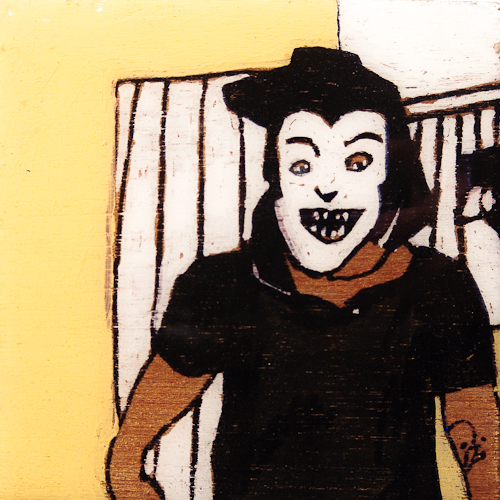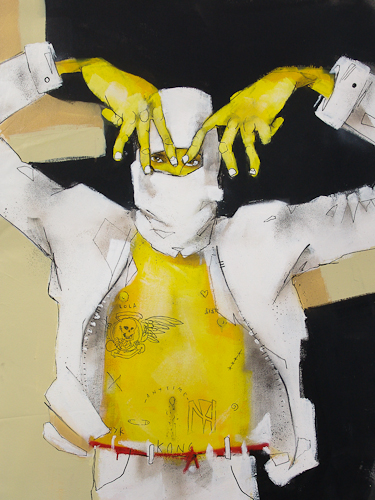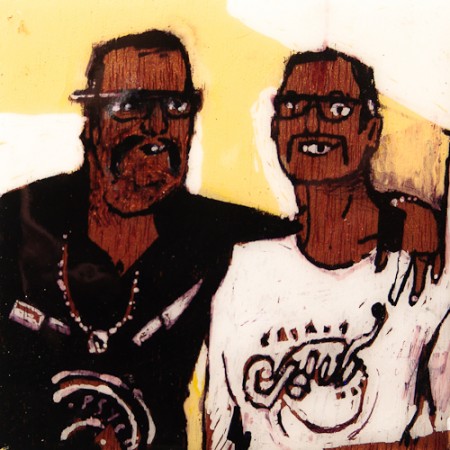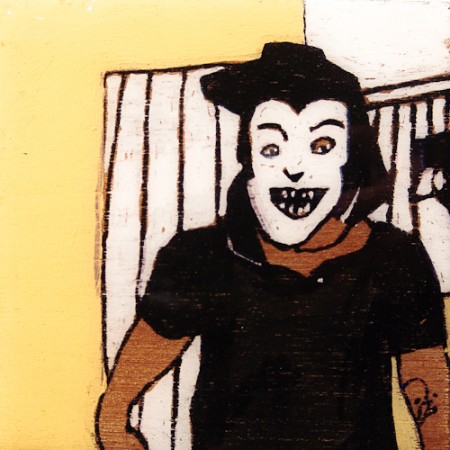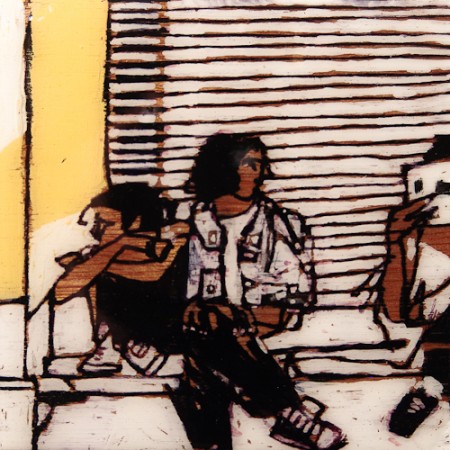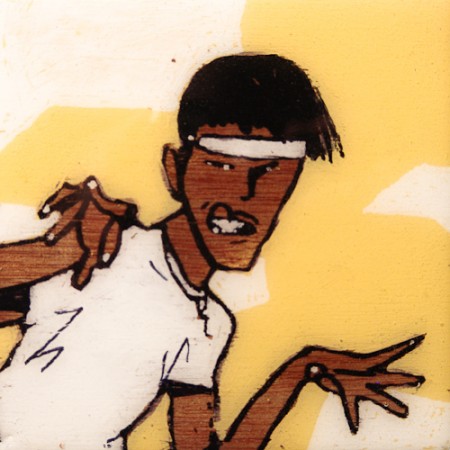“Magic Tricks” is the latest solo exhibition from Australian-born painter and street artist Anthony Lister. His two-person show with Craola (previewed/interviewed) opens February 5th at Fifty24SF.
Lister’s latest body of work veers away from his abstracted figural imagery and focuses on paintings derived from images found in his recent book, “Tales of White Trash Prophecy.” Read about this and more in the rest of our interview, after the jump.
Arrested Motion (AM): This show at Fifty24 is entitled “Magic Tricks.” What is your focus for this latest body of work?
Anthony Lister (AL): Well, I’ve taken images from my book and painted pictures from them. It has been refreshing for me lately, drawing from life and photographs as opposed to the imaginary and overtly abstract. For a long time now I have wanted to do a body of work from photos of friends and I think this is just that.
AM: You recently took over Faile’s studio while they were in London. Did this new workspace have any influence on your pieces?
AL: Yes, I think it did and I told them so. I found the size of the space and my relationship with Faile themselves held a constant presence in my mind while progressing through dealing with the problems within body of work itself. For example I found myself wanting to use text and colors that were familiar to me from the past but not my usual choice of chromatics.
AM: In Faile’s studio we also saw you working on some substantially bigger pieces than we’re used to seeing. Did you approach these larger pieces any differently?
AL: No. I always prefer to think bigger and act on it whenever possible.
AM: We noticed that you have been “getting up” a lot in recent months. What continues to drive you to do street art?
AL: For all different reasons I guess. Sometimes it’s because I want to be with friends and act silly. Sometimes I like it on my own and take it very seriously. It allows me to feel more connected to my community both physically and socially.
AM: Do you approach your street art and studio work differently or do they compliment each other?
AL: I treat them differently. The studio allows me to develop slowly with much more thought and care. The street is a fun time for me to be free and act sloppy without being too hard on myself.
AM: Thank you. We look forward to seeing the rest of your work from the show.



